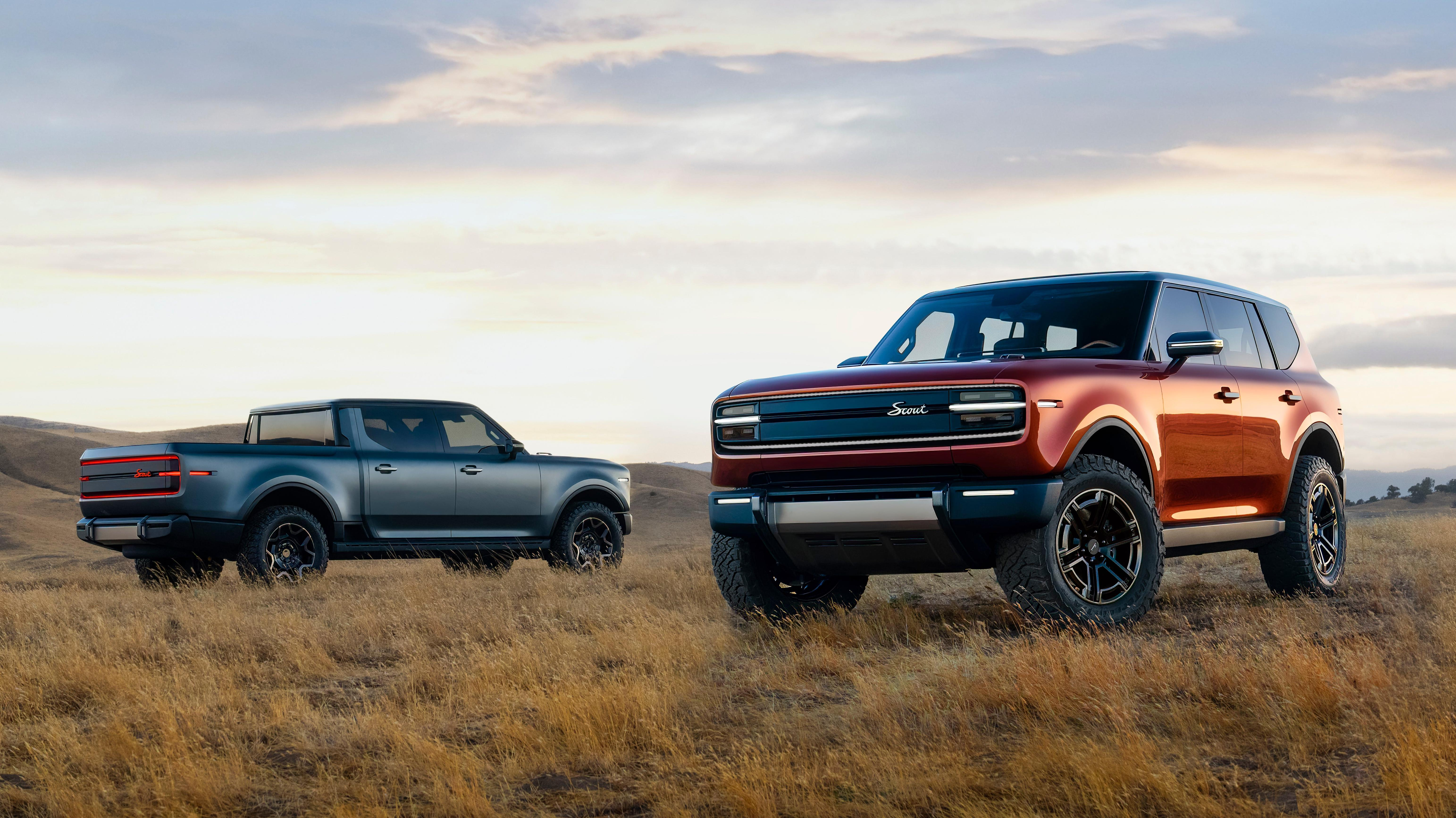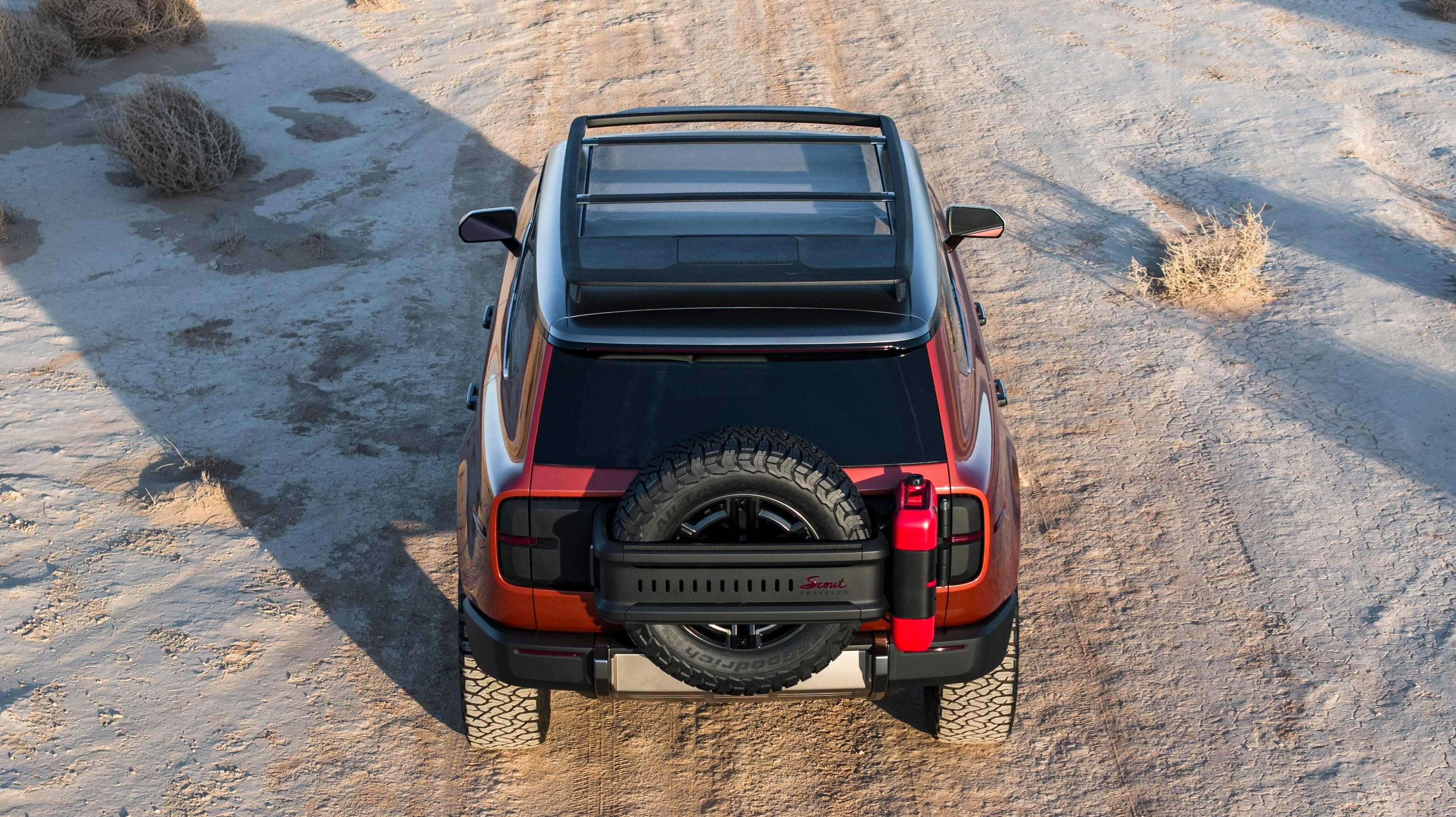Scout Thinks A Gas Range Extender And Global Satellite Connectivity Will Get Off-Roading Enthusiasts To Buy Its EVs
Going off grid isn’t conducive to EV use, but Scout Motors aims to change that perception
Hardcore off-roaders aren't a particularly open-minded group. In fact, one group was so averse to the new school that they started a car company dedicated to producing a new old-fashioned off-roader called the Ineos Grenadier. Thus, the announcement of the revival of vintage American truck maker Scout as an all-electric off-road vehicle manufacturer had some traditionalists concerned. The minds behind Scout's revival unveiled some tools at CES 2025 that they feel might convince some skeptics to become believers. The first was a roof-rack-mounted satellite receiver that allows for internet connectivity anywhere on the surface of the planet. That futuristic concept shared the stage with a century-old concept, an optional gas-powered motor generator that can be added to Scout's vehicles to keep them driving beyond the reach of an extension cord.
Has going off-grid ever felt too analog to you? Maybe you're a business owner who's tired of your employee's excuses about not having internet access while bushwhacking on their frivolous time off. Scout Motors' roof-rack mounted satellite receiver is the perfect tool for you; it allegedly eliminates the loss of internet connectivity as long as you can see the sky. No matter how far you try to run away from society, you won't ever have an excuse to miss what really matters in life, emails and Slack notifications! Scout unveiled this brilliant invention at CES 2025. Edmunds said,
"The range extender allows you to go anywhere, and now this allows you to be connected anywhere," Scout Motors CEO Scott Keogh said. "In America, 500,000 square miles is uncovered by cell towers. With the very positioning of our car, you can go anywhere and do anything."
Keogh declined to say which of the few but growing number of satellite internet providers the company will partner with to provide this service, but it seems safe to assume that it probably won't be Elon Musk's Starlink.
This form of connectivity will, of course, come at an additional cost, but Keogh expects that access will be relatively affordable by the time Scout's cars start shipping in 2027. The result will be a vehicle that could be your mobile office, even for those who are extremely mobile.

CES 2025 was also where Scout showcased an example of its electric Traveler SUV with a gas can mounted on the back. CEO Scott Keogh said that an optional gas-powered range extender will be a small-displacement engine that will likely be sourced from within Scout's parent company: Volkswagen Group. The engine will exclusively work as a generator to efficiently add additional range when owners venture off the grid, or any other setting where a boost is needed like when towing. Scout Motors' head of strategy Ryan Decker said its vehicles' body-on-frame design will allow the generator to slot in behind the rear axle without sacrificing storage space or ground clearance, and far enough away from the driver to minimize sound intrusion.
The idea of a modular gas-powered motor generator to extend the range of an electric vehicle is not a new one, but it should broaden the appeal of serious off-roading in an EV. Keogh said the range extender expands Scout's market by up to 40 percent and takes much of the worry out of switching to electrification.
The idea of constant connectivity regardless of your global position, however, sounds like a new and inventive way for companies to exploit working-class people who are desperately seeking a rare opportunity to disconnect. It has its benefits, especially for navigation purposes, but isn't the whole point of going off-grid to go off-grid? Isn't being powered by electricity the whole point of an EV? Maybe I'm missing the point, but these two innovations will likely be great selling points for these trucks and allow Scout to fulfill its ultimate purpose; to make its corporate overlords lots and lots of money.

